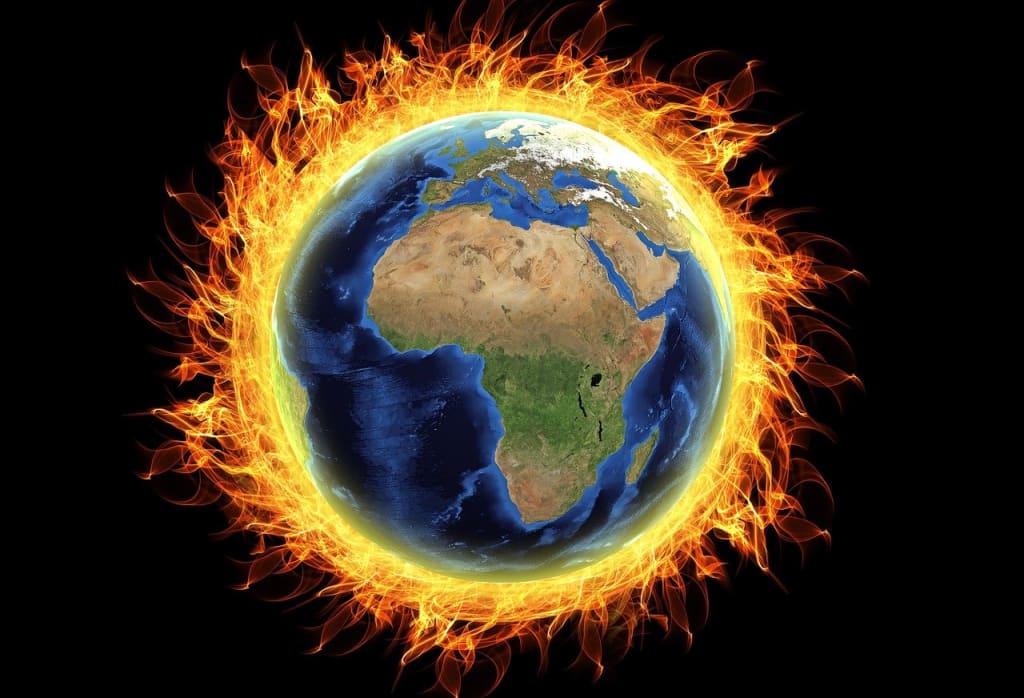Causes And Effects of Global Warming
Global Warming

Global warming is a pressing issue that is causing significant changes to our planet’s climate and ecosystems. The rise in global temperatures, also known as global warming, is primarily driven by the increase in greenhouse gases in the atmosphere. In this article, we will explore the causes and effects of global warming, as well as its implications for the environment and our lives.
What Causes Global Warming?
Global warming is primarily caused by human activities that release greenhouse gases into the atmosphere. Gases, such as methane (CH4), nitrous oxide (N2O) and carbon dioxide (CO2), trap heat from the sun and prevent it from escaping back into space. The main contributors to greenhouse gas emissions are:
Burning of Fossil Fuels
The burning of coal, oil, and natural gas for energy production is the largest source of greenhouse gas emissions. Power plants, factories, and vehicles all contribute to the release of carbon dioxide into the atmosphere.
Deforestation
Trees absorb carbon dioxide and release oxygen through the process of photosynthesis. The clearing of forests for agriculture, logging, and urbanization reduces the Earth’s capacity to absorb CO2, leading to higher concentrations of greenhouse gases in the atmosphere.
Industrial Processes
Certain industrial processes, such as cement production and chemical manufacturing, release greenhouse gases as byproducts. These emissions contribute to the overall increase in global temperatures.
Agriculture
Agricultural practices, including rice cultivation, livestock farming, and the use of synthetic fertilizers, release significant amounts of methane and nitrous oxide, both potent greenhouse gases.
Effects of Global Warming
The effects of global warming are already being observed and are projected to intensify in the coming decades. These effects have widespread implications for the environment, wildlife, and human societies. Some of the key effects of global warming include:
1. Melting Ice and Rising Sea Levels
One of the most visible impacts of global warming is the melting of ice worldwide. Glaciers, ice sheets, and Arctic sea ice are all experiencing significant reductions in their size and volume. For example, Glacier National Park in Montana has seen a decline in the number of glaciers from over 150 in 1910 to fewer than 30 today.
Ice melting contributes to the rise in sea levels. Global sea levels have been increasing at an average rate of 0.13 inches (3.2 millimeters) per year, and this rate is expected to accelerate in the future. Rising sea levels pose a threat to coastal communities, leading to increased coastal erosion, flooding, and the loss of valuable ecosystems.
2. Changing Wildlife and Habitats
Rising temperatures and changing climate patterns are affecting wildlife and their habitats. Many species are struggling to adapt to these rapid changes, leading to shifts in their distribution and abundance. For example, the Adélie penguin population in Antarctica has experienced a collapse of over 90 percent in some regions due to the loss of sea ice. Similarly, some butterfly species, foxes, and alpine plants have been forced to migrate to higher, cooler areas as their original habitats become unsuitable.
3. Altered Precipitation Patterns
Global warming is also impacting precipitation patterns around the world. While overall precipitation has increased on a global average, some regions are experiencing more severe droughts. These droughts increase the risk of wildfires, crop failures, and drinking water shortages. In contrast, other regions are experiencing more intense rainfall events, leading to increased flooding and soil erosion.
4. Increased Frequency of Extreme Weather Events
Global warming is amplifying the frequency and intensity of extreme weather events. Heatwaves, hurricanes, cyclones, and droughts are becoming more common and more severe. Warmer ocean temperatures provide more energy for the formation and intensification of hurricanes and tropical storms. These extreme weather events pose a significant threat to human lives, infrastructure, and ecosystems.
5. Threats to Ecosystems and Biodiversity
Ecosystems around the world are under threat due to global warming. Changes in precipitation and temperature patterns can disrupt the balance of ecosystems, leading to the huge loss of biodiversity. Some species may be able to adapt and thrive in new conditions, while others may face extinction. Polar bears, for example, rely on sea ice for hunting and are particularly vulnerable to the loss of their habitat.
6. Future Implications
If global warming continues unchecked, the effects are projected to worsen in the future. Some of the potential future implications of global warming include:
Rising sea levels
By the end of the century, sea levels are expected to rise between 10 and 32 inches (26 and 82 centimeters) or higher. This would lead to the displacement of millions of people living in coastal areas.
Stronger storms
Hurricanes and other storms are likely to become stronger due to warmer ocean temperatures. This would increase the risk of storm surges, flooding, and property damage.
Water scarcity
Glaciers store about three-quarters of the world’s freshwater. As they continue to melt, freshwater availability will decrease, leading to water scarcity in many regions.
Spread of diseases
Global warming can create favorable conditions for the spread of diseases. Mosquito-borne diseases like malaria and the Zika virus are likely to become more prevalent.
Changes in ecosystems
Ecosystems will continue to change as species migrate and adapt to new conditions. This can have cascading effects on the entire ecosystem, leading to shifts in species composition and ecosystem functions.
Conclusion
Global warming is a complex issue with far-reaching consequences for our planet’s climate and ecosystems. It is mainly caused by human activities that release greenhouse gases into the atmosphere. The effects of global warming are already being observed, including melting ice, rising sea levels, changing wildlife habitats, altered precipitation patterns, and an increased frequency of extreme weather events. If left unchecked, global warming will have severe implications for our environment, biodiversity, and human societies. Urgent action is needed to reduce greenhouse gas emissions and mitigate the impacts of global warming.
Originally published by ProductVortex on 20/12/2023.






Comments (1)
This article impresses me; it's well-written and full of valuable information.